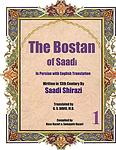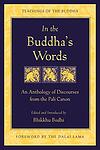The Greatest "Ancient Literature, Religion & Spirituality" Books of All Time
Click to learn how this list is calculated.
This list represents a comprehensive and trusted collection of the greatest books. Developed through a specialized algorithm, it brings together 300 'best of' book lists to form a definitive guide to the world's most acclaimed books. For those interested in how these books are chosen, additional details can be found on the rankings page.
Genres
Ancient Literature refers to the body of written works produced during the earliest periods of human history, typically up until the fall of the Roman Empire in the 5th century AD. This category encompasses a diverse array of texts, including religious scriptures, epic poetry, philosophical treatises, historical accounts, and dramatic plays, originating from various civilizations such as the Sumerians, Egyptians, Greeks, Romans, Chinese, and Indians, among others. Notable works within this genre include the "Epic of Gilgamesh," Homer's "Iliad" and "Odyssey," the plays of Sophocles and Euripides, the philosophical writings of Plato and Aristotle, the "Mahabharata" and "Ramayana" from India, and the foundational texts of Confucianism and Taoism in China. Ancient literature provides invaluable insights into the thoughts, beliefs, and cultural practices of early societies, and continues to influence modern storytelling, philosophy, and ethics.
The category of "Religion & Spirituality" encompasses books that explore various belief systems, practices, and experiences related to religion and spirituality. This includes books on different religions, such as Christianity, Islam, Buddhism, and Hinduism, as well as books on spiritual practices like meditation, yoga, and mindfulness. The category also includes books on personal growth, self-help, and inspirational stories that draw from religious and spiritual traditions. Overall, the category of "Religion & Spirituality" offers a diverse range of books that explore the human experience of seeking meaning, purpose, and connection with something greater than oneself.
Countries
Date Range
Reading Statistics
Click the button below to see how many of these books you've read!
Download
If you're interested in downloading this list as a CSV file for use in a spreadsheet application, you can easily do so by clicking the button below. Please note that to ensure a manageable file size and faster download, the CSV will include details for only the first 500 books.
Download-
1. Epic of Gilgamesh by Unknown
This ancient Mesopotamian epic follows the story of Gilgamesh, a demigod king who rules over the city of Uruk. Unhappy with his reign, the gods create a wild man named Enkidu to challenge him. However, Gilgamesh and Enkidu become close friends and embark on several adventures together, including defeating the demon Humbaba and killing the Bull of Heaven. After Enkidu's death, Gilgamesh becomes obsessed with finding immortality, leading him on a journey to meet Utnapishtim, the only human who has been granted eternal life. The narrative explores themes of friendship, mortality, and the meaning of life.
-
2. Mahabharata by Vyasa
The book is an English translation of the ancient Indian epic, originally written in Sanskrit, which tells the story of a great war that took place between two groups of cousins, the Kauravas and the Pandavas. The narrative explores themes of duty, righteousness, and honor while also featuring a rich array of gods, goddesses, and supernatural beings. It is not only a tale of war and conflict, but also a profound philosophical and spiritual treatise, containing the Bhagavad Gita, a sacred text of Hindu philosophy.
-
3. Tao Te Ching by Lao Tsu
This ancient text is a fundamental guide to the philosophy of Taoism, offering wisdom on how to live a balanced, virtuous life in harmony with the natural world and the Tao, the source of all existence. The book explores themes such as simplicity, humility, and non-aggression, emphasizing the importance of understanding and aligning oneself with the Tao. It provides guidance on leadership, personal growth, and spiritual enlightenment, advocating for a life of peace, contemplation, and connection with the universe.
-
4. The Book of Job by Unknown
"The Book of Job" is a profound biblical narrative that explores the themes of faith, suffering, and divine justice. It tells the story of Job, a prosperous and righteous man who experiences immense suffering as he loses his wealth, children, and health. Despite his trials, Job maintains his faith in God, engaging in intense dialogues about human suffering and divine justice. The story concludes with God restoring Job's fortunes and blessing him more abundantly than before, demonstrating the inscrutable nature of divine wisdom and the rewards of unwavering faith.
-
5. Masnavi by Jalal al-Din Muhammad Rumi
Masnavi is a collection of poems that offer deep and profound reflections on the various aspects of life. The author, a 13th-century Persian poet, philosopher, and theologian, uses lyricism and allegorical tales to explore themes such as love, divine mysticism, and the human condition. The work is highly regarded for its spiritual insight and wisdom, often drawing on Quranic verses and Hadiths for inspiration. It is considered one of the greatest works of Persian literature and a pinnacle of Sufi mystic tradition.
-
6. Bostan by Saadi
"Bostan" is a classic Persian poetry book that delves into ethical philosophy and Sufism. The book is divided into ten chapters, each focusing on a different virtue such as justice, gratitude, love, and humility. The author uses beautiful and vivid imagery, along with tales and anecdotes, to illustrate moral and ethical lessons. The book is revered for its deep spiritual insights and wisdom, offering readers a guide on how to live a virtuous and meaningful life.
-
7. Mencius by Mencius
"Mencius" is a philosophical text that presents the teachings and thoughts of Mencius, a follower of Confucius. The book is a compilation of dialogues, anecdotes, and allegories that illustrate Mencius's views on human nature, morality, and political theory. Central to his philosophy is the belief in the inherent goodness of human nature and the importance of cultivating one's moral character. The book also discusses his ideas on proper governance, advocating for a benevolent and virtuous ruler who prioritizes the welfare of the people.
-
8. I Ching by China
This ancient Chinese text is a divination system and book of wisdom. It provides guidance for moral and ethical decisions through 64 hexagrams, which are six-line figures made up of broken and unbroken lines. Each hexagram represents a specific situation or state of affairs, and the text provides interpretations and advice for each. The book has been used for centuries as a tool for decision-making, prediction, and gaining deeper understanding of situations and relationships.
-
9. Gospels by Unknown
"Gospels" is a collection of four books from the New Testament of the Christian Bible, written by various authors. These books provide accounts of the life, teachings, death, and resurrection of Jesus Christ, each from a different perspective. They serve as the primary source of information about Jesus and form the basis of Christian theology and belief.
-
10. The Collected Songs of Cold Mountain by Han Shan
"The Collected Songs of Cold Mountain" is a compilation of poems by a legendary Chinese poet. The book is a collection of over 300 poems filled with wit, wisdom, and spiritual insight. The poet, a recluse who lived in the mountains, expresses his views on life, nature, and the impermanence of human existence through his deeply philosophical and often humorous verses. He is considered a significant figure in Chinese literature and his works have greatly influenced Zen Buddhism.
-
11. Allegorical Expositions of the Holy Laws by Philo of Alexandria
This book is a comprehensive examination of the Jewish laws as interpreted through the lens of Hellenistic philosophy. The author uses allegory to explain the significance and deeper meanings behind these laws, drawing on both Jewish and Greek philosophical traditions. The text serves as an exploration of morality, ethics, and religious observance, offering readers a unique perspective on Jewish law and its intersection with broader philosophical concepts.
-
12. Dhammapada by Unknown
The Dhammapada is a revered text in Theravada Buddhism, containing 423 verses divided into 26 chapters. It provides a comprehensive guide to the Buddha's teachings, focusing on ethics, meditation, wisdom, and the path to nirvana. The verses are intended to be practical and applicable to everyday life, offering guidance on how to live a life of compassion, mindfulness, and wisdom. The text is considered one of the most accessible introductions to Buddhist philosophy and practice.
-
13. Avesta by Zoroastrian scripture
"Avesta" is a sacred text of Zoroastrianism, an ancient Persian religion predating Islam. The book contains the teachings of Zoroaster (Zarathustra), the prophet and founder of Zoroastrianism. It includes hymns, rituals, and legal and ethical codes, all intended to guide followers in their spiritual journey. The text also provides insights into the history, culture, and philosophical concepts of the Zoroastrian faith, including the dualistic cosmology of good and evil and the role of free will.
Reading Statistics
Click the button below to see how many of these books you've read!
Download
If you're interested in downloading this list as a CSV file for use in a spreadsheet application, you can easily do so by clicking the button below. Please note that to ensure a manageable file size and faster download, the CSV will include details for only the first 500 books.
Download










